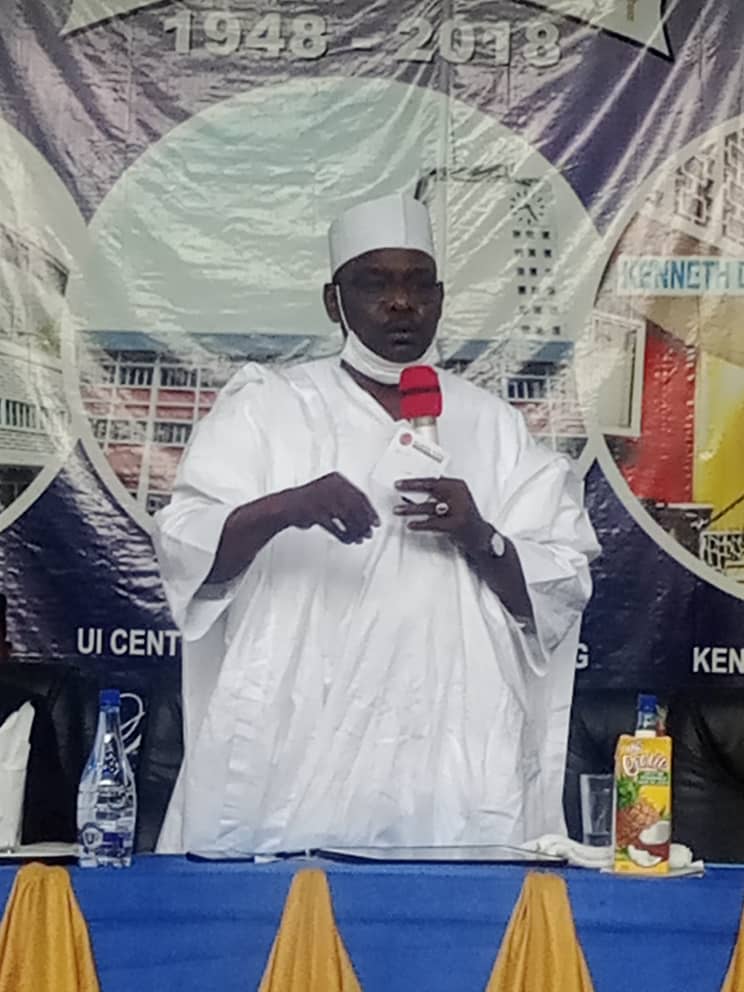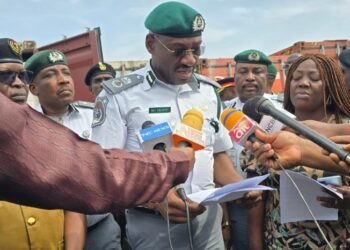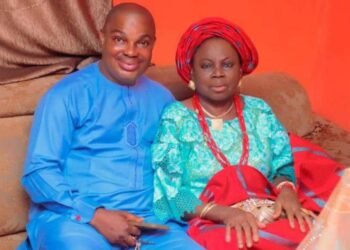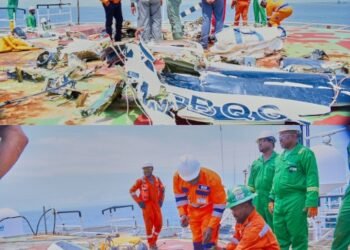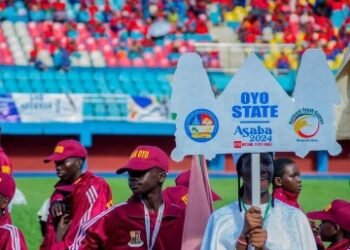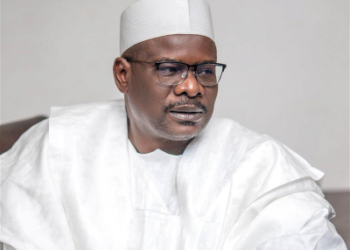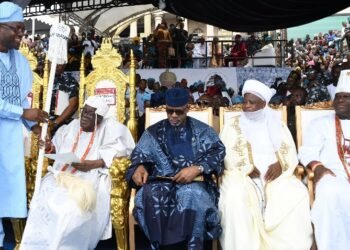The Unexplained Wealth And The Fight Against Corruption
Introduction
One of the endemic problems of Nigeria is corruption. The present regime rode to power on the slogan “fight against corruption” or “zero tolerance for corruption” as its cardinal focus of government.
In the last six years of this administration, the press is awash with issues relating to the fight against corruption. Properties were seized, high profile corruption cases were filed in various courts, some persons involved are on self-exile, some jailed while a lot more is going on. These notwithstanding I think there are certain things that need to be done or completed.
Corruption has impact on economic well-being of the people and tends to widen the gap between those who have and those who do not. The denial of the use of resources stolen can directly or indirectly hamper growth and development and government’s effort to reduce poverty.
A society like ours that has a very deep social stratification in terms of economic endowment will not know peace when the majority are not able to afford necessities of life such as food, shelter, education, and health care.
To compound the issue in this country, we do not have a social safety net to deal with the consequences of deep division with a larger part of the population being the have nots.
The current security challenges that are all over the country without exception is a by-product of this. Corruption and insecurity are closely bound with the funding of transnational organised crime like terrorism, human trafficking, drug crimes and illegal arms trade.
What makes the perpetrators more heinous, at least, from the interviews with those apprehended shows that there is impunity from the rich and those in power where no education is offered, no jobs are available, no housing to stay and no medical care to afford. They point to the affluent and those in power as the cause of all these.
In this paper, I intend to look at an issue which is popular in some climes but somewhat new and appears to have been ignored in this part of the world. This issue is “The unexplained wealth” and what needs to be done to probably get the entire society involved in the fight against corruption.
Consequently, I intend to discuss this paper as follows: What is unexplained wealth and its constituent’s; Empirical evidence and experiences of other jurisdictions; Current legal regime related to unexplained wealth.
What Is Unexplained Wealth And Its Constituents?
Without delving into an academic exercise notwithstanding the forum in which I am presenting this paper, it means having property, money, bond, or instrument of economic value that has not been legitimately acquired in accordance with the laws of the land or international law.
What constitutes wealth is changing and technology has brought about a lot of challenges. In the past we can physically see property, money in bank but today they are invisible except with the aid of technology.
The adjective “unexplained” simply means the explanations are not acceptable in law. Mathematically, the total wealth of an individual and his or her legitimately earned income do not add up. That simply means there is no accountability for the wealth acquired.
Lessons From Other Jurisdictions
We can draw lessons from other jurisdictions and the best practices put in place by the United Nations on curbing corruption. We need to domesticate our own version, given our peculiarities. The United Kingdom (UK) has Proceeds of Crime Act 2002 (POCA) and has continued to improve on it.
Law enforcement agencies, banks and those charged with managing properties have defined responsibilities and obligations to report and enforce. They have serious sanctions for breach. All stakeholders are in tandem when it comes to the issues. A greater part of that Act is enforced by constant issue of subsidiary rules and regulations that take care of new innovations in the commission of the crime.
There is also what is called an Unexplained Wealth Order (UWO). An Unexplained Wealth Order (UWO) is a type of court order issued by British courts to compel the target to reveal the sources of their unexplained wealth.
UWOs were introduced by sections 1–2 of the Criminal Finances Act 2017 of UK and are governed by sections 362A–362T of Part 8 of the Proceeds of Crime Act 2002. Effective 31 January 2018, under the Criminal Finances Act 2017, individuals and corporate bodies are required to explain how they lawfully acquired property.
Unexplained Wealth Orders (‘UWOs’), nicknamed “McMafia Orders” (after the book and TV series of the same name), extend the UK’s existing civil recovery regime and enable law enforcement agencies to seize and dispose of unlawfully obtained property in certain circumstances.
The UK High Court may grant a UWO without notice if it is satisfied that the known income of the person holding thep property would have been insufficient for the purposes of lawfully obtaining it. A UWO can apply to UK and non-UK property and can be served on a person outside of the UK.
UWOs affect persons falling into the following categories: Politically Exposed Persons (‘PEPs’), including family members or associates of PEPs; or Persons where there are reasonable grounds to suspect involvement in serious crime (including fraud, money laundering, tax evasion offences, or bribery and corruption). It is enough to simply show a connection to such a person.
With respect to property requirements, the value of the individual’s interest in the property specified must be greater than £50,000 (property owned by more than one person can be made subject to a UWO) as well as real estate. The wide definition of property includes assets such as jets, boats, motor vehicles, artwork, jewelry, and intangible assets, such as securities and bonds.
In responding to an UWO, the court will require a legal Statement in Response to a UWO. Persons concerned that they may be subject to a UWO should consider in advance the documents which can be produced to explain how property was lawfully obtained.
Failure to respond may lead to civil recovery of the property in question, whilst a false and/or misleading statement can result in up to two (2) years’ imprisonment, a fine, or both. A simultaneous freezing injunction may also be imposed prohibiting the movement or sale of the property.
The Legal Regime On Unexplained Wealth In Nigeria
The legal regime on unexplained wealth arguably begins from the Constitution of the Federal Republic of Nigeria 1999. The Constitution guarantees several fundamental rights under Chapter IV. Some of these rights include the right to freedom of movement, the right to property, the right to freedom of religion and so many others.
With respect to the right to hold property, the constitution stated unequivocally that no person should be deprived of this right except for public purpose and compensation must be paid. But of particular interest is the right to fair hearing.
My understanding, based on my acquaintance with lawyers, is that every person who is being prosecuted can remain silent. He or she is not obliged to respond to interrogatories on the alleged crime.
Similarly, no person should be charged, arrested, or detained for any offence without the prosecution giving particulars of the crime suspected to have been committed. He who alleges must prove. The burden of proof is on the prosecution. In this case, the state.
This, I understand, constitute standard practice. They are said to be accusatorial principles. Most of the cases bordering on unaccounted wealth had been shielded by the defense on these provisions.
I acknowledge the fact that improvements have been made in the EFCC and Anti-Money Laundering and Combating Financial Terrorism Act to seize property without regard to these provisions. Nonetheless, there is the need to do more.
The banks are enjoined to do “Know Your Customers”. This is known by the acronym: KYC. Any withdrawal or deposit above certain amount by individuals and corporate bodies must be reported to the enforcement agencies by the bank. The Nigerian Customs and Immigration are on the alert. Persons are required to make declarations for certain amount of money.
In the seventh National Assembly, there was the Proceed of Crimes Bill passed which substantially deals with these issues. To make people accountable, to enable law enforcement agencies seize property suspected to have been acquired as proceeds of crime. Unfortunately, it was not assented to by the then President [Goodluck] Jonathan.
It suffered the consequences of corruption. Those in power and the rich could not face the enormous powers given to the law enforcement agencies in the Bill.
The fall out of the non-signing of this Bill came out in complaint as to recovered loots and its accountability. There were accusations between CBN, EFCC and the Office of the Attorney General of the Federation. The debate remains.
This ninth National Assembly was also presented with an Executive Bill on the same proceed of Crime Bill. This time around, it was more comprehensive on the management agency and on how the recovered loot would be managed.
After undergoing the hearing in both chambers and sent for assent, the President returned the Bill on the ground that there would be some inter-agency rivalry on the management of the proceeds. Since then, nothing has been done again.
In the similar vein, we had the Whistle Blower’s policy that was yielding result but had been thrown away due to one or two matters of false report. We all know for sure that most of the whistle blowers would come from domestic servants, like guards, nannies, relations, whose social status is weak. Corruption would certainly fight back.
There appears to be that the policy was not properly articulated to take care of eventualities. It appears the baby has been thrown away with the water. The whistle blowers were not protected by law, the reward was not articulated.
How We Can Deal With Unexplained Wealth In Nigeria?
The fight against corruption is fight for the nation and must start from the top to the bottom. This is what I call: “do it all.” One should not be mistaken on how good it is to have riches, but toxic riches should be abhorred because it pollutes the society. It changes our good culture. It breeds injustice and impunity.
Every citizen has a role to play. To this end, there is the need to look at the incidence of corruption, most especially, those occasioned by public officers who are in trust of public wealth.
It is my view that the need for the President [Muhammadu Buhari] to urgently issue and sign an Unexplained Wealth Order and prevail on the National Assembly to pass the Proceeds of Crime Bill in time, regardless of the bickering on the management of the proceeds recovered.
Our crusade against this monster should start from the politicians, top public servants, civil servants down to local governments staff.
For the perpetrators, it is not difficult to identify the tendencies exhibited by these officers: acquiring landed property in and outside the country, having fat bank deposits, buying expensive cars, or marrying so many wives, etc.
The Politically Exposed Persons (PEP), such as senators, members of House of Representatives, ministers, House of Assembly members, commissioners and local government chairmen and those directly connected to the finances of government such as Directors of Finance, treasurers, accountants, and revenue officers are in this category.
At present, they are less sophisticated than those who would embrace Bitcoins for transaction or go to Silicon Valley to acquire wealth. The visibility of the perpetrators is loud in the government: cars, houses, parties, wives, dress, jewelry, etc. All of them are quite visible to the locals who have the instinct to ask questions.
Our whistle blower policy which had still birth before it became law must be revisited. The motivation should not just be the reward but patriotism. The whistle blowers must be active at all levels inclusive of local areas. They must not be scared but must be protected by law at whatever cost.
Curiously, the perpetrators and the criminal justice system had effectively used the press to kill the zeal on issues not investigated or found to be an honest mistake. The press amplified to the dictate of perpetrators.
What I am saying is that we must go a step further to protect the whistle blower by law. Such an important witness or informant can be relocated for protection. To do this, the banks, the land registry, the stock dealers, the financial institutions must not cooperate, and an obligation must be imposed on all with sanction in the event of breach.
So far, only the whistle blower alleged to have lied is taken to court. I ask where the others are. Offending corporate bodies and officials should also be charged as accessories, or conspirators.
Ancillary to this is the use of plea bargain in cases bordering on corruption. This has been endorsed in most state Administration of Criminal Justice Law where a suspect before conviction can choose to negotiate with the prosecutor to get a lesser penalty or charge, by forfeiting part of the unexplained wealth. I am not sure it is all.
The preliminary investigations I understand can best be described as a bait for the perpetrator to give in than to allow full investigation. In my opinion it is an incentive to rather than deter future perpetrators of cases of this nature.
Public policy should be the guide and in this case matters of unexplained wealth should be excluded for the application of this provision. I understand in India there are such exceptions based on public policy. The integrity of the justice system is very important and unscrupulous public officials should not exploit this.
The Code of Conduct Bureau (CCB) has a duty to require every public officer to make a declaration of asset periodically. What I am not sure of is whether they do have the right to verify the claims ab initio, or when there is some complaint from some quarters. Do they have the capacity to carry out the investigations in all spheres of the unexplained wealth? The need to revisit the law to give it a tooth including receiving report from the whistle blower without threat is important.
Let me call on the ICPC, EFCC, DSS to take whistle blowers seriously. In the line of duty, they should carry out investigation on such matters no matter how casual it may be. Their officers at local level should as a matter of fact have the same eyes as that of whistle blowers.
The National Orientation Agency (NOA) and the Federal Ministry of Information have a great role to play. The war against indiscipline (WAI) of yesteryears and the positive impact it had on the citizenry is a case in point.
These aforementioned agencies therefore need to embark on vigorous war against corruption.
May I finally call on the Nigerian Press to embark on serious investigative journalism on corruption as a crusade. They should raise issues for answers to be provided. If you find yourselves in a village with a house full of marble on its floor, this should itself, be a cause for investigation. Or if you attend a village party and you see someone spraying dollars, the sight should be a whistle blowing itself.
Conclusion
In conclusion, ladies, and gentlemen, we must also acknowledge the fact that corruption is a wicked problem because if the environmental factor is taken care of, the individual factor is not predictable or cannot be defined.
So, the fight against corruption is not a one-off fight that can be won at once but a continuous lifetime struggle that we must all join hands to kill the monster right from the cradle anytime it is identified.
Finally, I charge the citizens to join the cause and preach the gospel to all and sundry that our lives depend on it so that we can make Nigeria work and take care of all of us.
The fight against toxic wealth is a fight of the nation, it is a fight for our soul, our culture, a fight for equality in the society, a fight for the integrity of the government. We must be patriotic enough to fight. We must remove all obstacles.
Let me end by a quotation from President [Joe] Biden of USA who said, “Corruption is a cancer: a cancer that eats away at a citizen’s faith in democracy, diminishes the instinct for innovation and creativity” and President Muhammadu Buhari said “If we don’t kill corruption, corruption will kill us“.
•A paper delivered by Senator Ndume, the Chairman, Senate Committee on Army, as the Guest Lecturer at the 2021 Distinguished Leadership Lecture Series of the University of Ibadan, on Saturday, 6 November, 2021.
















